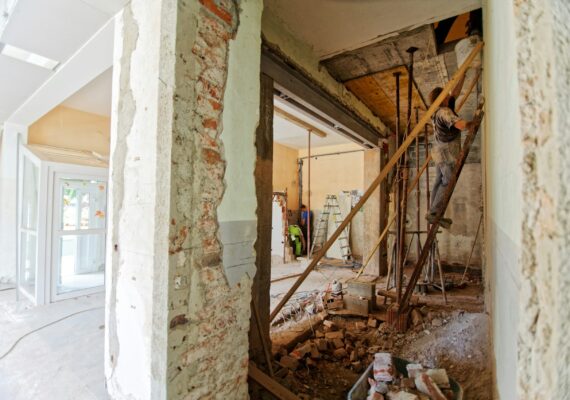Is there a right time to sell your property? How long should you hold on to your real estate asset?
There may be no right or wrong answer, considering the many nuances around real estate investment for every individual – and institutional investor. Or is there? When you look at the properties in your portfolio, you should have a fair idea of which ones to keep or dispose of. Whether you decide to sell or hold on to your property, there are pros and cons. And that makes things even trickier for many real estate investors.
Benefits of holding on to your property
Depending on the type of property, holding on has immense benefits you can always enjoy as a real estate investor. Here are a few benefits to consider:
Security for more funds:
In countries with solid mortgage financing options, you can use your property as security to secure funds for other investments.
Cash flow benefits:
If it’s an income-producing property, you can enjoy regular inflows like rent and license fees when you let it out to tenants. That security of income can help you plan other investments. And in the best-case scenario, you can enjoy healthy returns from that.
Building your asset base
Having an investment property in your portfolio gives you the safety net of more assets. In a healthy market, that adds to your wealth, what with the rising property values.
Benefits of selling (at the right time)
If you sell your property for the right price and the perfect time, you can enjoy massive benefits as a real estate investor. Here are a few:
Healthy capital gains:
When you sell your property at a price far higher than what you paid to develop/acquire it, you can enjoy massive capital gains. Given that most real estate appreciates with time, this benefit can reward many property investors.
Savings in bad costs:
A property that costs you unreasonably high amounts in management and holding could provide a healthy reprieve when you finally get it off your books. Selling off non-performing real estate assets will help you save on those costs and avoid negative returns on your overall investment portfolio.
Frees up funds for other investments:
Selling your property frees up funds for other investment opportunities. That could be huge if the sale allows you to invest in more promising options than the property affords you.
We’ve seen the benefits of holding on to your real estate asset and selling it. Again, neither option is wrong; it’ll depend on your unique case. But how do you know when to sell an asset or keep it? Here are some questions to help you find the best time and conditions to keep or dispose of that property.
What are your holding costs?
Holding on to property doesn’t come cheap. Depending on the property type, you may have to engage a property manager to help keep the property running. But that’s only the beginning.
You’ll have to deal with other incidental costs like maintenance, taxes and rates, debt repayments, and opportunity costs. Add to that the effects of vacancies and the cost of filling up the units, and these expenses quickly add up. Where you don’t get returns above these costs, your once-promising real estate investment raises serious questions. In the short term, that’s not unexpected.
Sustained periods of underperformance and swelling costs will raise red flags to any real estate investor – individual or institutional. That scenario will influence your decision to sell or hold on to your property. Of course, it’ll also depend on your confidence in your ability to turn things around.
The current market for your property type
Real estate functions best in a market. And these markets influence your decision to hold or sell your asset. It’s easy to see why. Where the market for your type of property is buoyant, you can decide to keep your property and enjoy the net positive returns. If the market nosedives, things become more complicated.
Should you divest or drop that property or hold it, waiting for the market to bounce back? These are not easy decisions to make.
Also, if the market is shifting away from your property type, should you quickly sell the property before it’s too late? How about holding on to it as a one-of-a-kind structure, a rare relic of markets past? These are not straightforward decisions. That shows the power the real estate market wields.
Read also: Your Complete Guide to Investing in Real Estate in Ghana
Market projections
As powerful as the current market is, markets never remain the same. Projections (more so than mere speculation) can affect your decision to keep or sell your property. While you can’t get every projection right, the cyclical nature of most real estate markets leaves clues.
But also, the changing times and developing trends will help you decide whether to keep or drop a particular property. For example, some analysts project the demand for office spaces in many cities will be 20% less than pre-pandemic levels, thanks to hybrid work models.
That makes for uneasy times for investors in the office space in some major cities globally. For office buildings with high holding costs and dwindling revenues, selling may be a better option.
Costs of improving property to meet current standards
We’ve mentioned shifting times and trends. Sometimes, some owners will consider remodeling their properties to meet the current standards. All well and good if the numbers make sense. Or at least hold some promise, though that may not always be.
Where the costs of improving the property to match the current market are unreasonably high, selling the property altogether may be the more sensible option. That’s especially true where the demand for these changing uses won’t rise because there’s already a lot of supply.
Conversely, if these costs are lower, and you can recoup them soon, you can hold on to your property, improve it, and enjoy these benefits.

Present investment needs
Fundamental to every real estate investment is returns. Over time, you want your asset to bring in solid returns. Where options abound, patience for that non-performing property could quickly wear thin.
So yeah, depending on your present investment needs and how well the asset meets those needs, you can either hold or sell. Of course, you need the broader market and economic contexts to make a more informed decision.
Future investment goals
The directions you intend to take with your (real estate) investments will determine whether to hold or sell a property. It’s normal to have different dreams than what you had a few years ago.
Where you find different dreams for your overall investment strategy, you can choose to dispose of a property that doesn’t align with those goals.
On the other hand,, when your forecasts change, you can examine your current lineup of investment properties and determine which ones can take you to the promised land. Or not.
So sell or hold?
There may never be a perfect time to hold or dispose of a property. Every investor is different; every property is unique; market forces change over time. But that said, it makes more – or less – financial sense to hold on to some properties.
Do you have a checklist of factors that guide you on whether to hold or sell any property? As an overall investment strategy, you need such a list. I hope this post sets you on that path.
Want more information about real estate investment in Ghana? Email info@hapgrid.com. Or call Hapgrid at +233-535-208-881.





Very interesting points you have mentioned, regards for
posting.Blog range